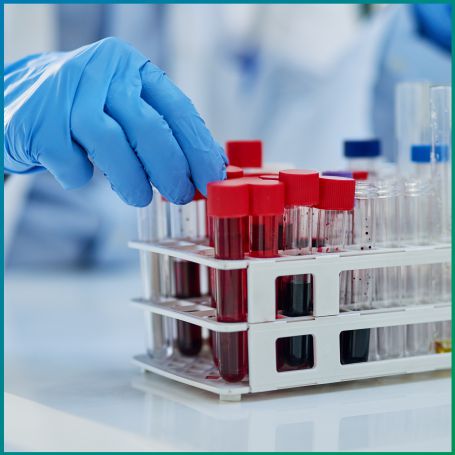
Culture and sensitivity tests are vital diagnostic tools in modern medicine, particularly in identifying the causative agents of infections and determining the most effective treatments.

Culture refers to the method of growing microorganisms (bacteria, fungi, viruses) from a sample to identify the specific organism causing an infection. Sensitivity testing, on the other hand, assesses the susceptibility of these microorganisms to various antibiotics or antifungal agents. This information is crucial for selecting the appropriate treatment, especially in the face of rising antibiotic resistance.
1. Urine - Urine culture is commonly performed to diagnose urinary tract infections (UTIs). The process involves collecting a mid-stream urine sample, which is then inoculated on culture media to promote bacterial growth. Common pathogens detected in urine cultures include:
A] Escherichia coli: The most frequent cause of UTIs.
B] Klebsiella pneumoniae: Another common pathogen associated with UTIs.
C] Proteus mirabilis: Often linked with complicated UTIs.
2. Pus - Pus cultures are crucial in diagnosing skin and soft tissue infections, abscesses, and other localized infections. A sample of pus is collected aseptically, typically from an abscess or infected wound. Common pathogens identified in pus cultures include:
A] Staphylococcus aureus: Particularly methicillin-resistant Staphylococcus aureus (MRSA), a significant cause of skin and soft tissue infections.
B] Streptococcus pyogenes: Known for causing skin infections such as cellulitis.
3. Body Fluids - Culture tests can be performed on various body fluids, including synovial fluid (joint fluid), cerebrospinal fluid (CSF), and pleural fluid. These cultures are essential in diagnosing conditions like septic arthritis, meningitis, and pneumonia.
A] Cerebrospinal Fluid: Culturing CSF can identify pathogens responsible for meningitis, such as Neisseria meningitidis or Streptococcus pneumoniae.
B] Pleural Fluid: Cultures of pleural effusion can help diagnose pneumonia or tuberculosis by identifying organisms like Mycobacterium tuberculosis.
4. Sputum - Sputum cultures are crucial for diagnosing respiratory infections, including pneumonia and tuberculosis. A sample is collected by expectoration or through a bronchoscope.
A] Mycobacterium tuberculosis: Sputum cultures are essential for diagnosing active tuberculosis.
B] Streptococcus pneumoniae and Haemophilus influenzae: Common pathogens associated with community-acquired pneumonia.
At Diagnopein, we offer comprehensive, accurate, and timely diagnostic services, including the Culture & Sensitivity 1 (Urine/Pus/Fluid/Sputum) test pune. With our NABL-accredited labs, cutting-edge technology, and skilled technicians, you can be assured of reliable results every time. Get your results quickly, especially when time is crucial in detecting severe infections.
Competitive pricing without compromising on quality. Our team of experienced professionals ensures the test is conducted smoothly with minimal discomfort. We provide not just the Culture & Sensitivity 1 (Urine/Pus/Fluid/Sputum) test results but insights into your health condition, helping you and your doctor make informed decisions about treatment. For more information call us at +91 9204 108108.
1. Culture Method
2. Sample
3. Colony Count
4. Organism(s) Isolated
5. Culture Report: Culture yields growth of
6. Culture isolated after 7 days :
7. Culture isolated after 14 days:
8. Culture isolated after 21 days:
9. Ampicillin
10. Amikacin
11. Amoxicillin clavulanate
12. AMOXYCLAV
13. cefoperazon+sulbactam
14. Cefuroxime
15. Cefepime
16. Cefixime
17. Cefotaxime
18. Ciprofloxacin
19. Colistin
20. Ertapenem
21. Fosfomycin
22. Gentamicin
23. Imipenem
24. Levofloxacin
25. Meropenem
26. Norfloxacin
27. Nitrofurantoin
28. Piperacillin-tazobactam
29. Tigecycline
30. Trimethoprim-Sulfamethoxazole (Cotrimoxazole)
31. High Level gentamycin (GEN)
32. Linezolid
33. Penicillin
34. Teicoplanin
35. Tetracycline
36. Vancomycin
37. Remarks
38. Clindamycin
39. Erythromycin
Yes, for urine tests, it’s often advised to avoid certain foods and drinks (like caffeine and alcohol) that may affect results. For sputum tests, patients may be asked to avoid eating or drinking for a short period before collection.
It is important because it provides accurate identification of the pathogens causing infections, allows for targeted treatment with effective antibiotics, and helps monitor antibiotic resistance patterns, ultimately improving patient outcomes.
Common samples for culture and sensitivity testing include urine, pus (from wounds or abscesses), body fluids (like synovial or cerebrospinal fluid), and sputum (from respiratory tract infections).